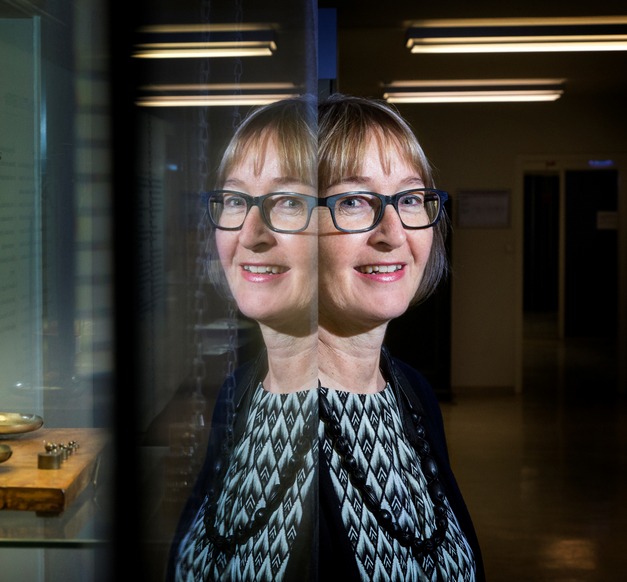Alzheimer's disease, characterised by dementia and memory loss, is a growing concern in today's welfare society. "The symptoms are complicated with many combining factors," says Elín Soffía, Professor at the Faculty of Pharmaceutical Sciences, who is working with her collaborators on a study of natural chemicals with multiple functionality that might serve as drug compounds to treat Alzheimer's and other neurological diseases.
Elín Soffía has studied substances found in Icelandic nature and says that scientific research is fascinating, as it provides both knowledge and understanding. "Research results create the platform for progress and prosperity in most aspects of society. The Nobel prize in Physiology or Medicine, awarded for the discovery of artemisinins, therapy for malaria, last year demonstrates that," she adds.
Elín Soffía's research has recently been focused on active substances in Icelandic low vegetation. The northern fir-moss Huperzia selago is involved as it contains, according to Elín Soffía, the known compound huperzien A, which works against the symptoms of Alzheimer's disease; as well as other chemicals that have yet to be studied.
"We screen for active chemical compounds in a large database for natural material with the help of a simulation model in computers, thus accelerating the discovery of new active compounds," says Elín Soffía. When asked she said they had already found some materials that the simulator predicted to be active, and some have been tested in bioassays. "These chemicals will then be studied further and used to maximise new screening for even more active matter." The importance of the study is unequivocal, as tens of millions of people struggle with Alzheimer's in the world. The research is based on approaching in a multifarious manner the many aspects of Alzheimer's. If successful it could lead to the development of useful drug compounds that could increase the quality of life for patients with Alzheimer's disease," concludes Elín Soffía.



